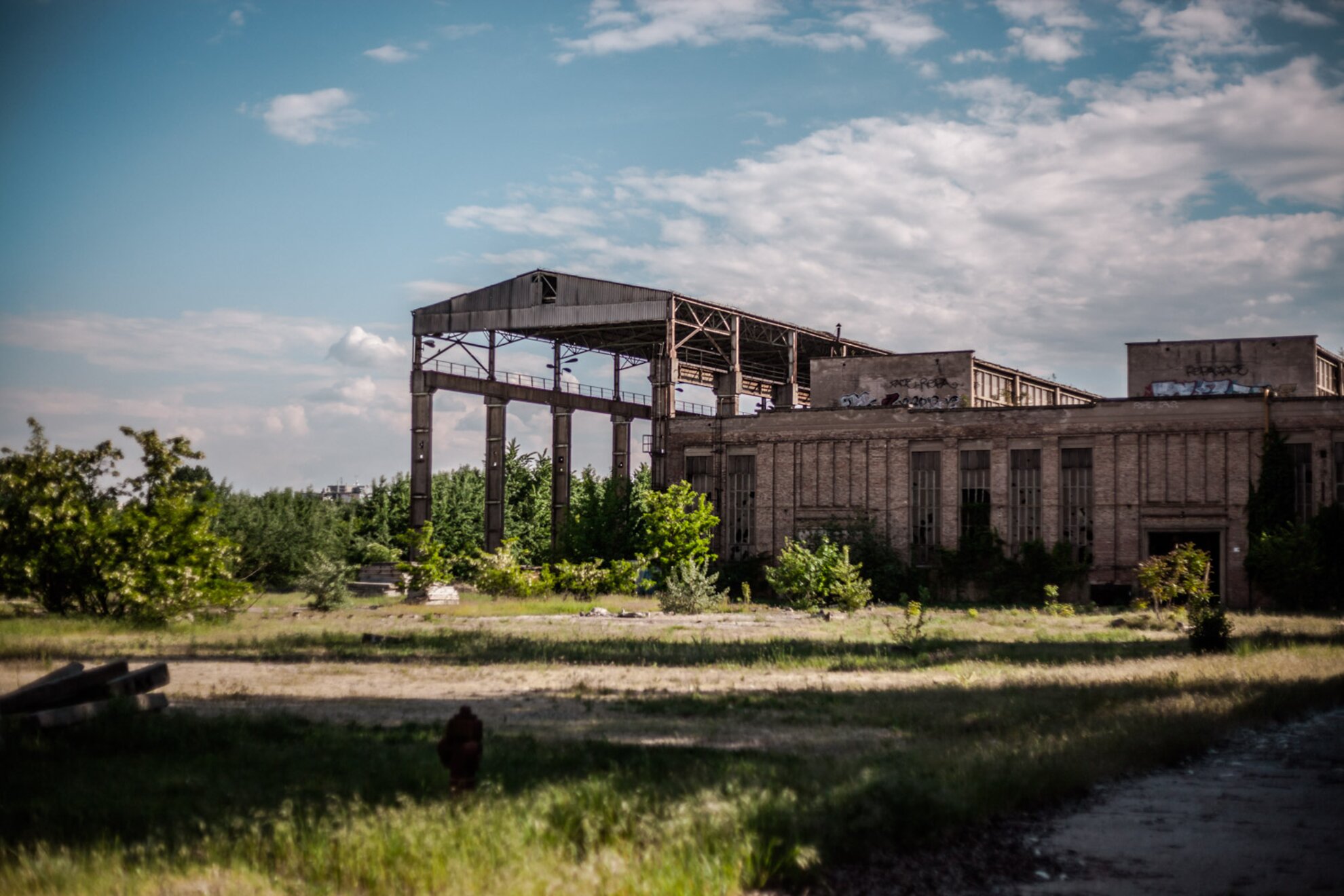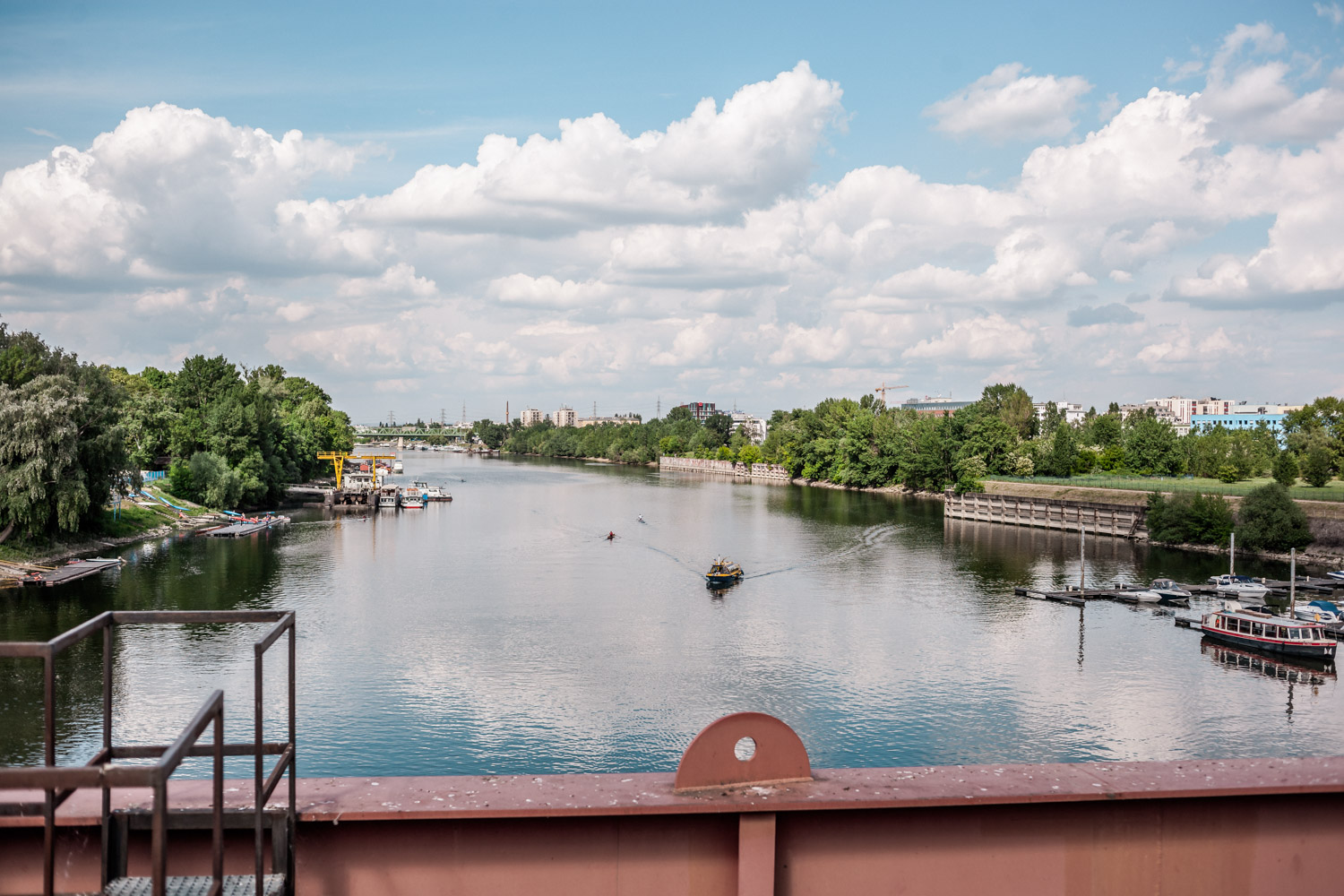Népsziget, aka Szúnyog-sziget (Mosquito Island), was originally one of Budapest’s Danube islands that was connected to Újpest through Zsilip Street in the 1830s. The aim was to create a wintertime harbor in the creek, alongside the Pesti and Fiumei Váci Road Shipyard, as well as establishing the Ganz Danubius Ship-and Crane Factory here. Back in the day the only possibility to cross over to Népsziget was aboard a ferryboat from Meder Street, until the plain-looking concrete footbridge was built.

Besides all of the industrial buildings, relaxation was also an important part of Népsziget; on the island’s western side, there used to be a riverfront strand that encouraged many companies to build holiday homes for their employees here, competing with nearby Római Part.

Today, most of the island’s buildings are abandoned, and nature conquered most of the neglected constructions at Népsziget. This daunting emptiness pervading one of the most significant green spaces of the city now attracts quite a few homeless people, who set up short- and long-term shelters here amid the ruins.

This is incredibly sad, because in the past the municipal government recognized enormous opportunities in this island, which was once even considered to be the venue for the 1928 Olympics. Huge investments were made over the years to revitalize Népsziget, but we can only see boat houses as the result, which are still widely used among lovers of water sports – especially kayakers – but these buildings aren’t exactly in good condition either.

But despite the sometimes disturbing decay, rust, and rubbish, not all hope is lost yet, as this place still holds many great qualities when it comes to picnics, running, biking, or walks by the Danube shore; furthermore a riding hall, a dog-training school, and a goat farm are all found here, too. The latter feature may sound a bit out of place, but in reality it’s not: this project was kicked off in 1988, and now the goats work as all-natural “mowing machines” on the otherwise weedy area, while also providing fresh goat milk.

During our stroll along the only concrete road of the island, we came accross a pleasant outdoor pub named Partizán Hajó, where guests can enjoy corn on the cob, grilled dishes, or bean soup, while also meeting the place’s resident piglet, Pedro, who lives by the children’s playground. Partizán is a suitable out-of-the-ordinary site for birthday parties and bigger events.

Not too far from here lies the Sziget Söröző (Island Pub), which is becoming more and more popular amongst Budapest residents due to its communist-era holiday-home feeling, and apparently various people from all around town travel all the way here for a deep-fried lángos.

The future of Népsziget is uncertain, and full of urban rumors that say it might be turned into a residential park or a yacht club, but nothing is specified yet. Many rely on the popularization of the neighbouring Marina shore area, which has not yet happened during the past few years. The athletes that we spoke with here would all like Népsziget to remain a place dedicated to sports and recreation, although they also agree that there’s a great need for the improvement of the infrastructure. When it all of this might happen, we can only guess – but in the meantime, if you are interested in embarking on an urban adventure with touches of charming nostalgia, an excursion to Népsziget may be perfect for you... just make sure to head back to civilization before sundown.




